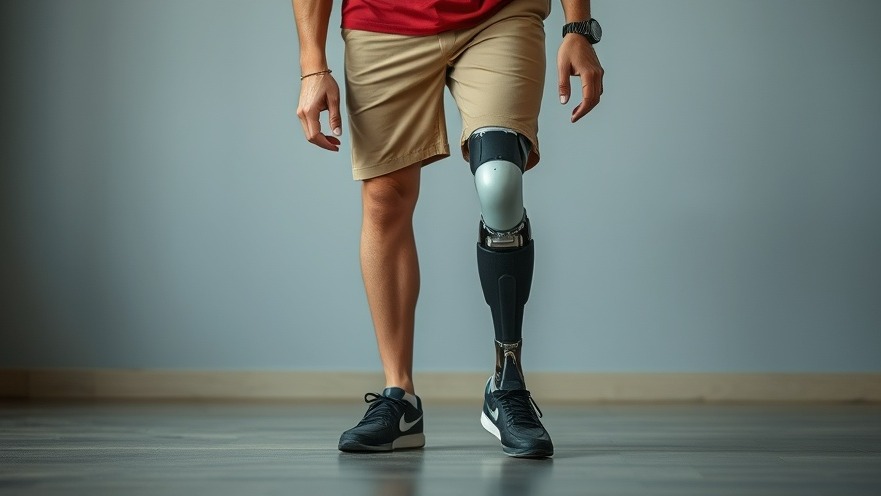
Revolutionizing Rehabilitation: The Emergence of Data-Driven Prosthetics
In recent years, the field of prosthetics has seen revolutionary advancements, notably through data-driven designs of prosthetic legs. This innovative approach leverages real-time data and complex algorithms to create personalized prosthetic solutions that respond dynamically to the user’s gait and specific needs. For health practitioners, particularly those in concierge medicine, understanding these developments is crucial as they significantly enhance patient rehabilitation and independence.
The Power of Personalization in Prosthetics
Traditional prosthetics often rely on general treatments, which can lead to discomfort and ineffective performance. However, the new wave of data-driven prosthetics tailors each device to the user. Sensors embedded in the legs track movement patterns and provide feedback, allowing for adjustments in real-time. For example, if a patient struggles with a particular aspect of their gait, the prosthetic can automatically realign or change its resistance to assist with smoother transitions.
Real-time Data: Driving Faster Solutions
Utilizing big data analytics not only optimizes the design but also allows extensive testing and refinement based on actual user experiences. Continuous data collection enables the creation of algorithms that predict user needs and improve responsiveness. This is particularly relevant for concierge health practitioners who seek to provide their patients with the most effective rehabilitation solutions. Data-driven prosthetics can indeed mean the difference between a long, arduous process and a streamlined recovery.
Future Predictions: Trends in Prosthetic Technology
The future of prosthetic technology points toward even greater integration of AI and machine learning. As these systems learn from vast amounts of patient data, customization will become more advanced. Prosthetics will soon anticipate the user's movements even before they occur, significantly enhancing functionality and user comfort. Health professionals must keep abreast of these technological advancements to prepare for future developments in their practice.
Counterarguments: Cost vs. Benefit
While the benefits of data-driven prosthetics are clear, one of the primary concerns raised is cost. Many of these innovative solutions carry a higher initial price tag compared to traditional options. Some practitioners argue that the resources required for maintenance and updates could outweigh the benefits. However, the long-term advantages—such as enhanced patient mobility, reduced follow-up care needs, and improved quality of life—can provide a compelling case for investment.
Case Studies: Successful Implementations in Practice
Several leading practices in concierge healthcare have begun integrating these advanced prosthetic technologies into their offerings. For instance, a recent program at a notable medical facility demonstrated that patients using personalized, data-driven prosthetics showed faster recovery and greater satisfaction compared to traditional models. Such case studies are essential for practitioners considering adopting these technologies, showcasing real-world applications and outcomes.
How Practitioners Can Stay Informed
For health practitioners seeking to stay informed on these evolving technologies, attending specialized workshops, webinars, and conferences focusing on prosthetic advancements can provide invaluable insights. Additionally, subscriptions to leading medical journals and industry publications, along with active participation in relevant professional networks, can enhance knowledge and facilitate sharing of groundbreaking practices.
Ultimately, the integration of data-driven prosthetics into patient care signifies a transformative moment in rehabilitation medicine. As these advancements continue to evolve, practitioners who embrace these changes will undoubtedly enhance their practice and provide better outcomes for their patients, shaping a future where mobility and independence are more accessible than ever before.
As a concierge health practitioner, staying ahead of medical news and incorporating these advancements into your practice is crucial. Embrace the knowledge and tools available to you, and consider how data-driven technologies can offer your patients personalized and effective recovery solutions.
 Add Row
Add Row  Add
Add 




Write A Comment